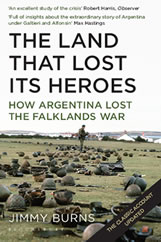Queen Elizabeth’s meeting with Pope Francis- officially described a courtesy visit- may have lacked the razzmatazz or political status of Obama’s but it was no less charged with potent symbolism.
This was the first trip abroad in over two years by the reigning monarch that despite her remarkably enduring physical and mental good health has wisely opted for a less hectic official diary befitting her age- She is 88 in just over three weeks’ time.
A rescheduled day trip to Italy-at the invitation of the anglophile Italian president-afforded an opportunity for a short courtesy visit to the Vatican that was happily seized on by the Palace (advised by the foreign office and Britain’s intelligent ambassador to the Holy See , an experienced career diplomat ). The Vatican for its part gave the nod within days of the papal election last march when Pope Francis asked his friend the now retired former Archbishop of Westminster Cardinal Cormac Murphy O’Connor to pass on his “warmest greetings” to Her Majesty, a thinly veiled message that the Queen would be well received.
At one level such mutual diplomatic respect is to be expected. Queen Elizabeth is not only a popular Monarch of one of the oldest and influential democracies in the world (and the head of 53 Commonwealth Countries straddling the world), but also a very committed Christian who has supported narrowing the historic rift between the Church of England of which she is supreme Governor and the Catholic Church.
Her meeting with Pope Francis was thus consistent with a record of cordial encounters with the Vatican dating back to 1951 when as young Princes, the heiress to the throne met Pope Pius X11, and continuing-as Queen- with Pope John XX111 (1961), Pope John Paul 11 (1982 and 2000) and Pope Benedict XVI (2010).
The current Pontiff- a man who had made humility and poverty a touchstone of his reign- could be excused for momentarily looking a little baffled by the gifts of various food products and whiskey from the House of Windsor’s various estates-but he ended up receiving them with a graceful smile.
The ecumenical spirit of the encounter was meanwhile underlined in the papal gifts to the Queen, commemorating the memory of one of the last Anglo-Saxon kings the medieval Edward the Confessor, who was canonised in 1161 by Pope Alexander 111 and has endured as a monarch commanding respect of English Protestants and English Catholics alike.
Such engagement no doubt will come as a disappointment to those in Argentina, not least President Cristina Fernandez who once tried to fuel the illusion among her countrymen that an Argentine Pope would aid her efforts to have Britain negotiate the transfer of sovereignty of the Falklands.
The fact that Malvinas was not even mentioned by Francis was an important reminder that whatever his roots and understandable love of his country, the office of a modern Pope is a universal one and cannot be influenced by narrow nationalist interests.
As for Queen Elizabeth,her silence on the controversial issue showed admirable tact as well as realism, knowing that the bond between her and Pope Francis transcends politics. Lest we forget, the coins of her realm still mention the title bestowed on King Henry V111 by Pope Leo X on 1521 before the break with Rome- Fidei Defensor, or Defender of the Faith. The Pope has no reason to doubt that the current monarch is a spiritual ally. He is wise to consider that the Falklands/ Malvinas is not an issue that Vatican diplomacy should mediate in.

